Cognitive Development Normal Animals Worksheets for Ages 4-8
5 filtered results
-
From - To
Discover our engaging "Cognitive Development Normal Animals Worksheets" designed specifically for children ages 4-8! These worksheets support young learners as they explore the fascinating world of animals while enhancing their cognitive skills. Through a variety of activities, kids will improve critical thinking, problem-solving, and logic in a fun and interactive way. Each worksheet features vibrant illustrations and age-appropriate tasks, making learning enjoyable. Topics include animal classifications, habitat matching, and memory games. Foster a love for learning and help your child develop essential skills with these captivating worksheets that will spark their curiosity and imagination! Perfect for classrooms or home learning adventures!
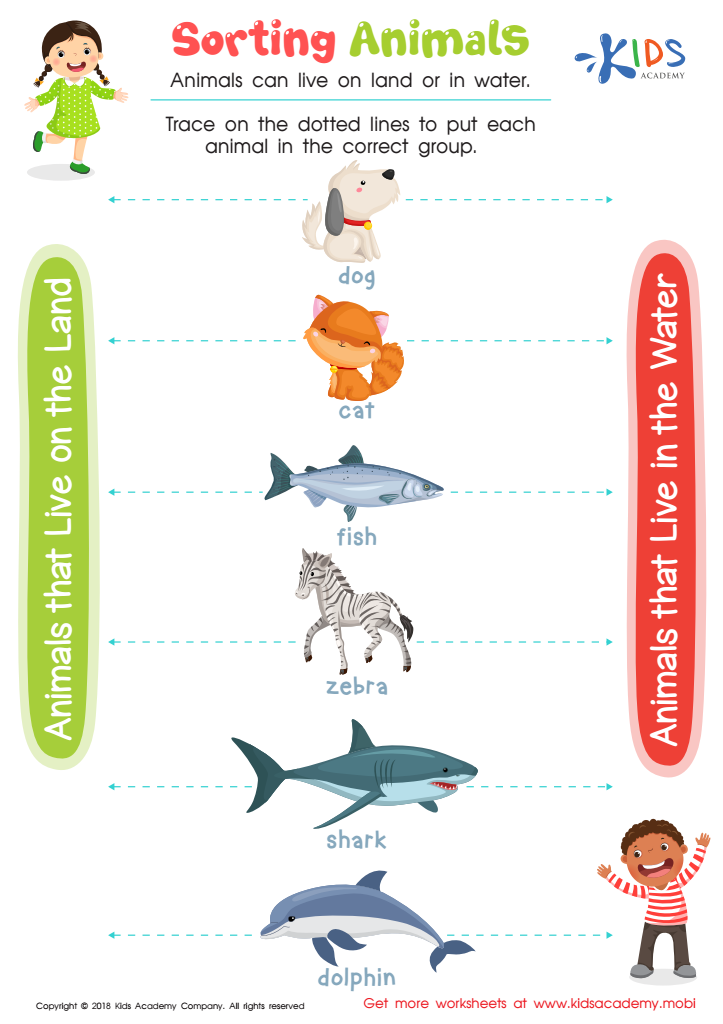

Sorting Animals Worksheet
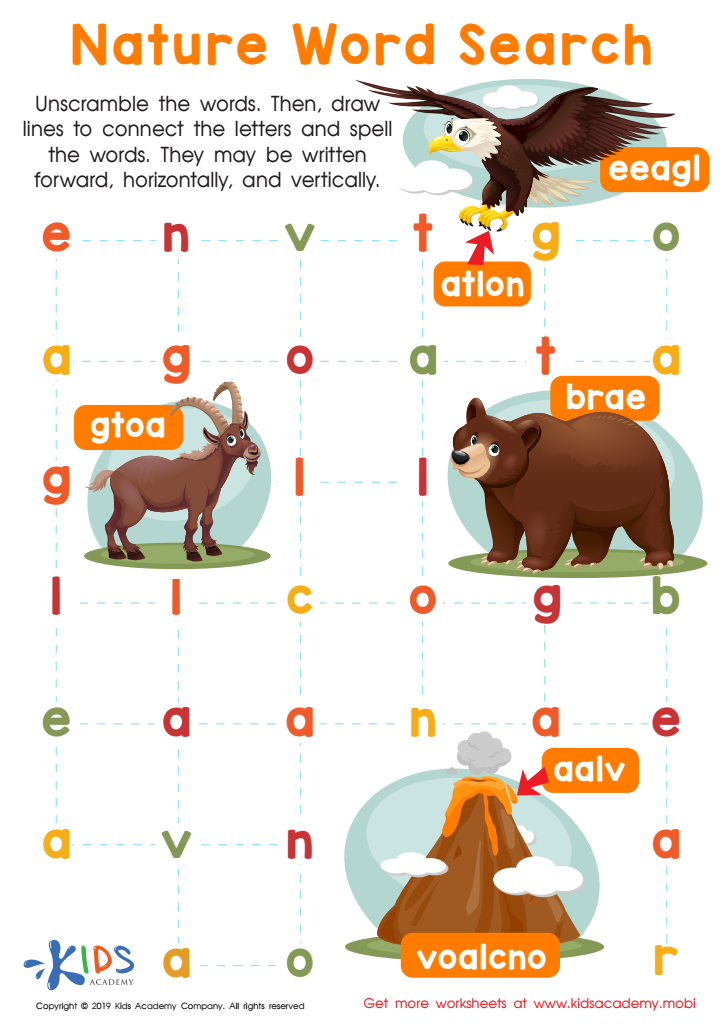

Nature Word Search Worksheet
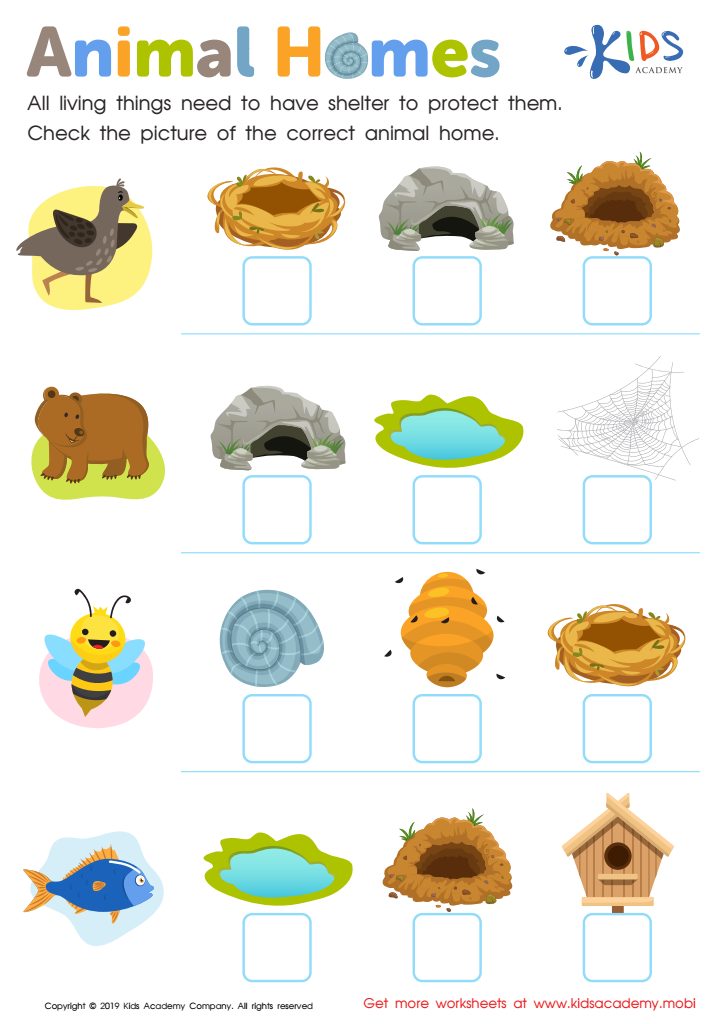

Animal Homes Worksheet
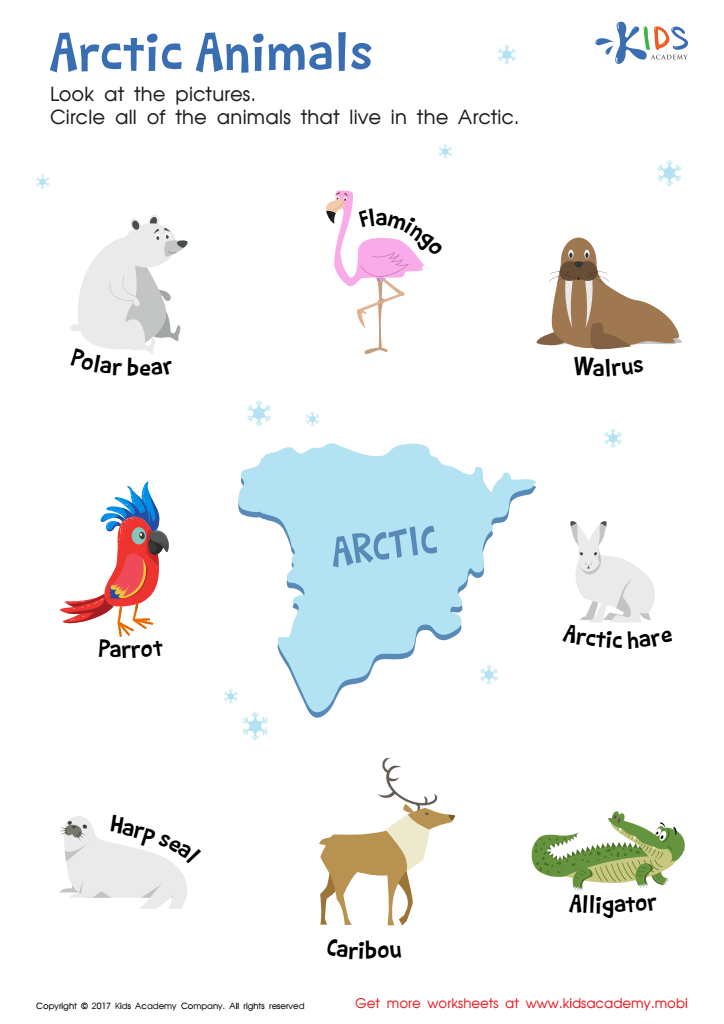

Arctic Animals Worksheet
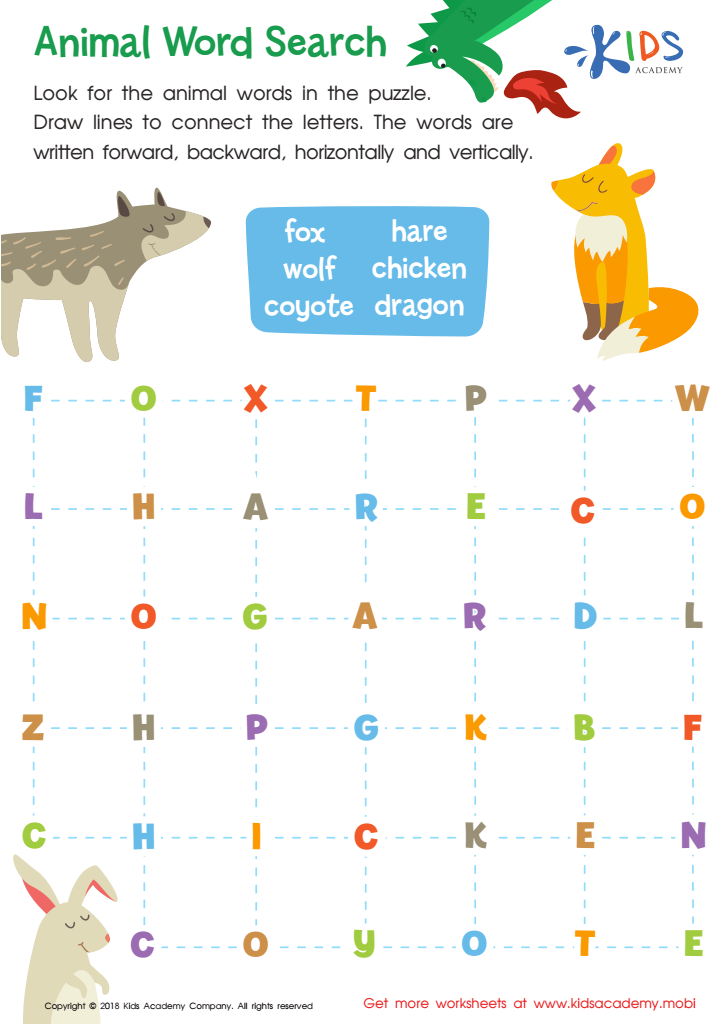

Animal Word Search Worksheet
Cognitive development in children aged 4-8 is a crucial period where their thinking, learning, and problem-solving skills are rapidly advancing. Understanding normal cognitive development in animals can provide valuable insights for parents and teachers aiming to nurture these skills effectively in children.
Firstly, examining animal behavior can illuminate key cognitive milestones that children are expected to reach, such as memory retention, categorization, and reasoning. For instance, observing how animals like chimpanzees use tools can parallel children’s emerging ability to solve problems through innovation and creativity.
Furthermore, by recognizing that humans and animals share similar developmental stages, educators and parents can integrate literacy and experiential learning activities that build upon the innate curiosity seen in both children and animals. Engaging children in discussions about animal cognition cultivates empathy and encourages critical thinking.
Additionally, understanding cognitive development equips parents and teachers to identify atypical behavior, enabling early intervention if developmental delays are suspected. Ultimately, acknowledging and supporting cognitive growth through animal comparisons can enrich educational practices and home environments, fostering confident, capable learners who appreciate both the human and animal worlds.
 Assign to My Students
Assign to My Students
















